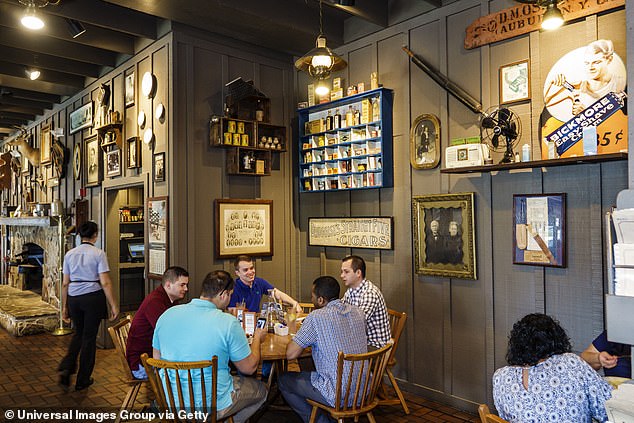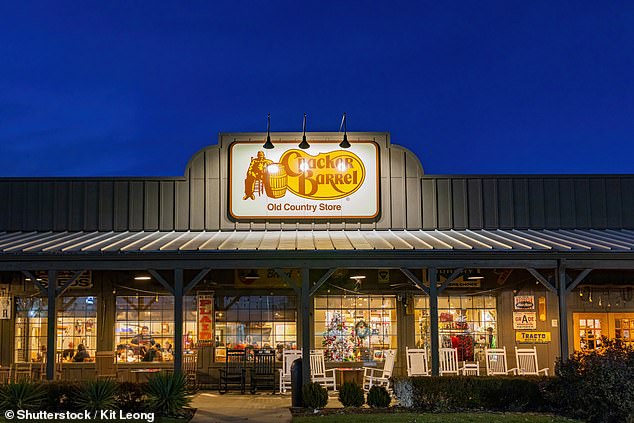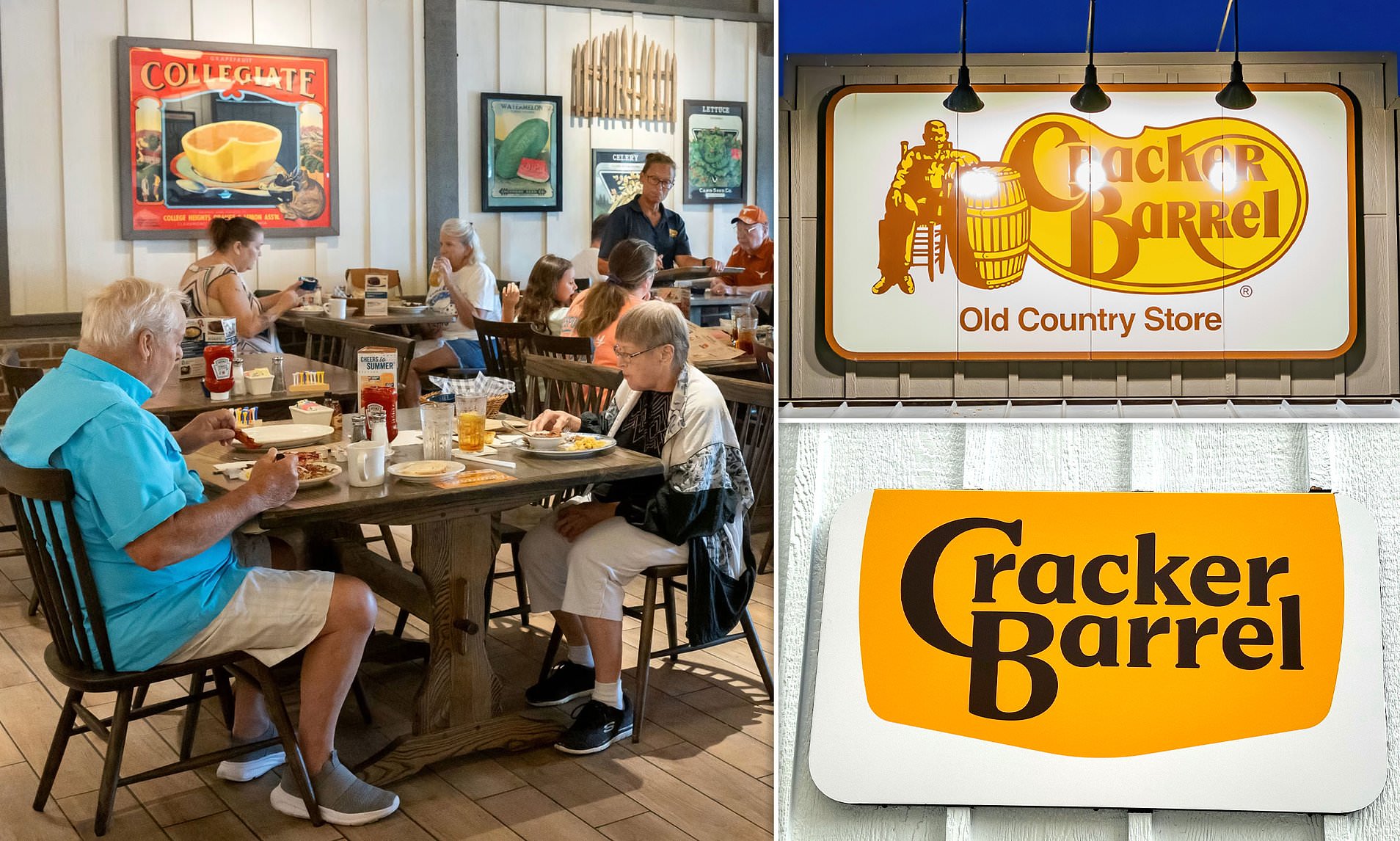Cracker Barrel has ended its working relationship with the marketing firm behind its rebranding this summer.
The casual, country-style dining chain has officially cut ties with Prophet, a consulting company it hired last year as part of a three-year strategic rebranding strategy.
Cracker Barrel also made key changes to its leadership structure, including by eliminating the chief restaurant and retail operations officer, a role that was held by now-departed executive Cammie Spillyards-Schaefer.
Prophet brainstormed the new minimalist logo that stripped out the iconic barrel and Uncle Hershel, stylized as a man in overalls who was the real-life ‘goodwill ambassador’ for the company.
The new, sanitized logo was rolled out on August 19 and immediately panned by nearly all Americans, especially conservatives, who labeled it woke because the restaurant was ditching its rustic charm.
For about a week, Cracker Barrel leadership held fast, with CEO Julie Felss Masino insisting that ‘people like what we’re doing’ in an interview with Good Morning America.
On August 26, the restaurant succumbed to the overwhelming pressure and announced it would revert back to its old logo.
Despite the course change, Cracker Barrel shares have continued to plummet going into the fall. On Thursday, its stock price closed at $44.19, more than 25 percent down since the brief logo swap.


Jerry Thomas, the CEO of Decision Analyst, a restaurant advising firm, told the Daily Mail in August that Cracker Barrel’s rebrand was ‘a major failure’ that can be laid entirely at the feet of senior management.
‘It’s obvious that Cracker Barrel did not do its homework before launching its “rebrand,”‘ Thomas added.
‘In the short-term, Cracker Barrel’s awareness will increase, and its sales will likely increase,’ Thomas said. ‘But longer term, the debacle raises serious questions about the leadership of Cracker Barrel and how its executives make strategic decisions.’
Cracker Barrel’s next earnings report is scheduled for November 13.
The intense coverage of Cracker Barrel’s rebrand gave way to increased scrutiny on working conditions for employees.
Many of them have flooded workplace review site Glassdoor to make their feelings known about management’s shortcomings.
A crew member in Minnesota posted: ‘To the CEO Julie Masino, stop cutting our hours.
‘We are making less pay for more work when we are understaffed because you suck at bringing this dead company from its grave.
‘Stop lowering your food quality. No it is NOT a good idea to force your cooks to serve bacon that is over a day old. Bacon shouldn’t be saved overnight, believe it or not.’

Separately, Cracker Barrel recently had to close 14 Maple Street Biscuit Company restaurants, a brand it bought in 2019 that it hoped would fuel growth.
Maple Street, founded in Florida 13 years ago, features high-end breakfast staples that include premium ingredients like apple butter and fresh goat cheese.
Cracker Barrel bought the chain for $36 million, when it had 28 locations, and expanded it to 68 at its peak earlier this year.
But the bet hasn’t paid off. Filings show Maple Street lost an estimated $16.2 million in value over the past year as sales lagged expectations.
Read more
- Has Cracker Barrel’s bold rebranding gamble cost them millions in stock market value, sparking an uproar among its fiercely loyal patrons?
- Why did Cracker Barrel’s controversial logo change cause a $100 million market value plunge?
- Did Cracker Barrel’s new logo trigger a $100 million market value plunge amid its sweeping rebrand?
- Is Cracker Barrel scrambling to undo damage from a disastrous logo change and complaints of ‘overcooked’ meals?
- Is the downfall of Cracker Barrel’s comfort food empire a cautionary tale of rebranding gone wrong?












